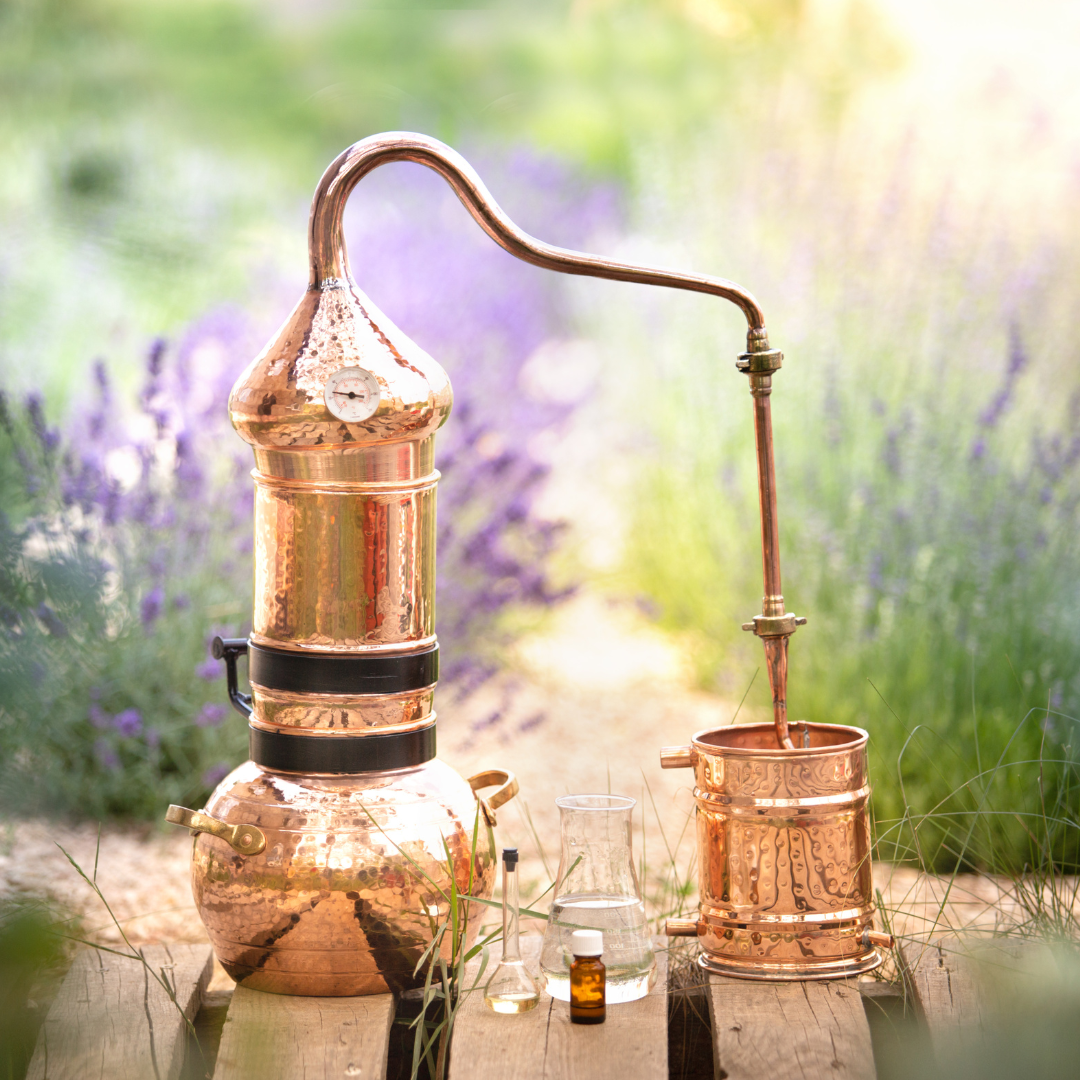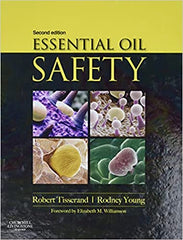Paracelsus famously said "All things are poison, and nothing is without poison; the dosage alone makes it so a thing is not a poison." This is often paraphrased as "The dose makes the poison." Everything needs to come with responsible moderation, we can't swing the pendulum too far either way, we need to find the relational usage point in each circumstance.
Essential oils are highly concentrated, aromatic liquids extracted from the leaves, stems, flowers, roots, or other parts of various plants using different methods of distillation or expression. They are called "essential" because they contain the essence, or volatile aroma compounds, of the plant from which they are derived. These compounds give each essential oil its characteristic fragrance and therapeutic properties which are used in aromatherapy.
There is a place for aromatherapy. I've seen so much divisive talk about essential oils recently, casting them out as strictly bad. Now, the way they have been consumed under the direction of big MLM companies is awful, and they should honestly be embarrassed for their wreckless consumption of plants and the land, but we're going to talk about responsible usage, not wasteful gluttony. Now please keep in mind, none of these statements I'm making come from a place of judgement, when we know better, we can do better. Learning and adjusting as we go is all a part of the journey.
There is an immense personal and ethical responsibility when it comes to essential oil usage. While some take kilograms of plant matter to produce the tiniest bit of oil, others like citrus essential oils is cold pressed from the rind of the fruit, and produces so much oil from a piece of the fruit that's not actually consumed in bulk anyways. We can't talk about these two oils the same, and it's not fair to blanket statement the entire aromatherapy industry the same.
I started my medicinal plant journey schooling in Aromatherapy, and continued into Clinical Aromatherapy Practitioner, I spent years immersed in that world, and it was actually at a time when unnamed MLM companies were absolute multi billion dollar giants (one of them even sued me, funny story for another day) so essential oil usage was at a peak. This exposed a nasty side of aromatherapy, wasteful, harmful, and wrecklessly dangerous.
Watching EO's being consumed in wasteful mass, leading to injury was awful. Consumer capitalism was running rampant in the plant Medicine world, and we had to just watch them try and burn the world down. The essential oil industry has had an impact on the populations of several plant species, some of which have become endangered as a result of overharvesting and habitat destruction, such as Rosewood, Sandalwood, Agarwood and more. The food industry actually leads a staggering percentage of this usage too. it is estimated that the aromatherapy market accounted for approximately 10% of the global essential oil market in 2020, which was valued at around $8.5 billion. This suggests that a significant portion of the world's essential oil consumption is used for aromatherapy purpose, which is a massive upswing from 2010's 3% usages numbers. This can be attributed to a growth of the wellness industry in popularity, but also a look at how quickly our usage got out of hand.
It's been a personal journey of ethics and access with essential oils. There IS a place in the world for essential oil use, just not how we have been using them, or told to use them.
The olfactory system is responsible for our sense of smell and plays a crucial role in how aromatherapy works. When we inhale an aroma, the scent molecules travel through the nasal passage and reach the olfactory receptors located in the olfactory epithelium, a specialized tissue in the upper part of the nasal cavity. The olfactory receptors detect the scent molecules and send signals to the olfactory bulb, which is located at the base of the brain. The olfactory bulb processes the information and sends signals to other parts of the brain, including the limbic system, which is involved in emotional and memory processing.
This is why aromatherapy is often used for its emotional and psychological effects, such as reducing stress, improving mood, and promoting relaxation. There is clinical evidence that this works, potently. This is an offering from plants that we can't match in things like herbal infusions. But with the power of these does come great responsibility. Most of aromatic oils are most potent when they're inhaled, this means a usage method of almost 0% consumption. Stored correctly, a small bottle of oil used in this way can last for years without a negative consumption impact. This applies to direct inhalation, but using an ultrasonic diffuser is another way to keep your usage down.
Another way we can use them responsibly is through buying them pre-diluted when you're wanting to use them topically. It's so rare that a consumer will buy a bottle of pure essential oil and use the entire bottle. Much gets wasted through the oxidization of time, or just plain lack of usage and thrown away. Buying them in a pre-diluted roll on form greatly reduces the usage!

Some things to consider when we're choosing to use EO's:
- The distillation rate and extraction method of the oil. Is this an oil that depletes resources just to make the smallest amount?
- Is the situation you want to treat worth the consumption rate? Or is there an alternative treatment method to consider?
- Are you using the most effective EO for the purpose? Instead of using 5 different oils for the same job, is there one single plant oil you can use instead?
- Are you consuming with low impact in mind? Think of every drop as bushels of plants as you're using them.
- Are you using it therapeutically? Or recreationally?
Therapeutic vs Recreationally, what does this mean? We all love our environment to smell great, I know I do. There was a period of time where we'd see essential oil diffusers running everywhere we went! Most of the time they were being used for 'ambiance' and fragrance, not mindfully or therapeutically. This did present massive safety risks though, as essential oils are indeed a volatile substance that presents the risk of reaction, so let's talk about that.
Essential Oil Safety. Just because it's natural, does not mean it's without risk. There is actually massive risks! Burns, dermatitis, photosensitivity, respiratory concerns, allergies, the list goes on. Each single plant has it's own list of chemical constituents, that means every single plant oil will have it's own usage rates and contradictions. It's not as simple as just 'using them'. This is a massive topic that will receive it's own post though, as there's so many considerations here. Please research each oil so well before usage. There's many reliable resources to do this, like the Tisserand Institute, and books on Essential Oil Safety.
De-colonizing your essential oil usage involves recognizing and addressing the ways in which the use of essential oils has been influenced by colonialism and cultural appropriation. Here are some steps you can take to de-colonize your essential oil usage:
- Learn about the cultural and historical context of essential oils. Essential oils have been used for medicinal and aromatic purposes by many cultures throughout history. By learning about the traditional uses and cultural significance of essential oils, you can gain a better understanding of their value and the ways in which they have been appropriated and commodified.
- Seek out essential oils that are sustainably sourced and produced. Many essential oils are sourced from developing countries and can contribute to the exploitation of workers and environmental degradation. Look for essential oils that are produced using sustainable and ethical practices, such as fair trade and organic farming.
- Avoid cultural appropriation. Essential oils have been used by many indigenous and traditional cultures for centuries. It's important to avoid appropriating cultural practices and claiming them as your own. Be respectful of the cultural origins of essential oils and avoid using them in a way that disrespects or erases their cultural significance.
- Support organizations that work to promote social and environmental justice. Many organizations work to support the rights of indigenous communities and protect the environment. By supporting these organizations, you can help to promote more sustainable and equitable practices in the production and use of essential oils.
And last but not least, a small list of how we should *not* be using essential oils, each of these will be expanded on in future topics, as all are equally important.
- Ingestion/Internal usage. This can cause massive damage that you cannot see until it's too late. This is unsafe as well as wasteful. I understand that this became common place in the Essential Oil Craze of the 2010's, but please stop. Oil of Oregano is vastly different than Oregano Oil for example. Let's not treat them the same.
- Candles, seriously. Why are we literally lighting our essential oils on fire? Do we value these plants so little that we're willing to burn them down for our own enjoyment? Look for alternatives like fragrance free, or phthalate and paraben free fragrance oils. Fragrances can be done safely, so let's not stigmatize those too.
- Neat application, this means directly on your skin. This can cause burns and dermatitis, but what's not spoken about is the sensitization that can happen from using them like this, meaning your body will form an adverse reaction only after using them on repeat after a longer period of time, making them unsafe for you personally to ever use again. Yes, this seriously happens more than you'd think.
- Using them on infants, immunocompromised people, individuals undergoing chemotherapy, radiation, dialysis or other system compromising treatments, pregnant people, or animals.
I hope this gave you a good starting look at my personal stance on Aromatherapy, this is a valuable therapeutic tool, but not in the way that we've been directed to use it. So let's do better, learn more and take care of the land that we're destroying. Always look for alternative treatments, and be mindful in your plant usage in all ways, always.



